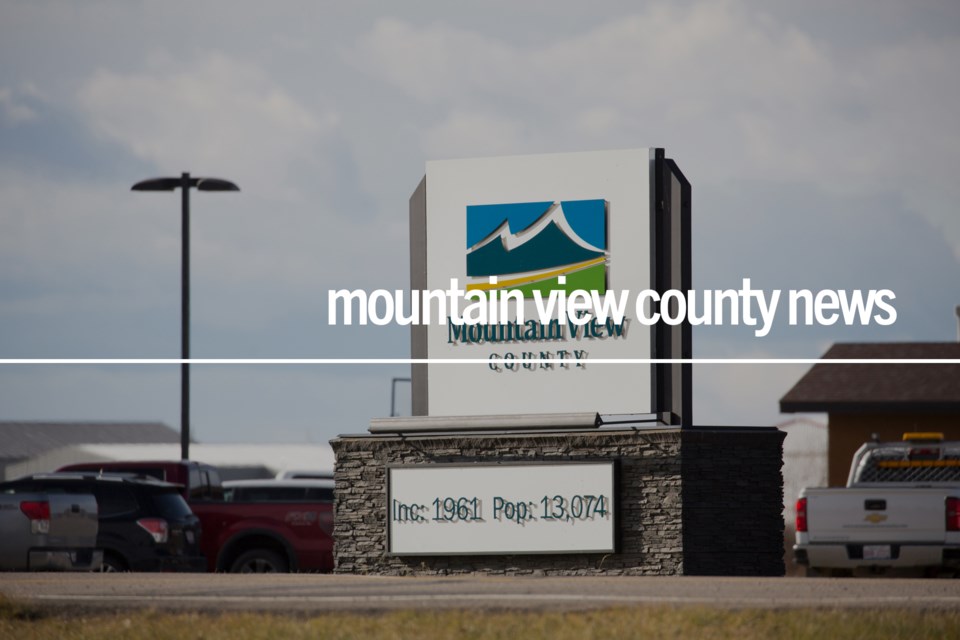MOUNTAIN VIEW COUNTY – Rural municipalities are voicing concerns with changes being considered to the assessment of wells, pipelines and machinery/equipment properties owned and operated by oil and gas companies.
The provincial government is considering several possible options for changes to the assessment model, changes it says are intended to support the competitiveness of the oil and gas industry while ensuring the viability of municipalities.
Al Kemmere is president of the Rural Municipalities of Alberta (RMA) and a Mountain View County councillor. He says if the changes go ahead they could have wide-reaching negative impacts on rural taxpayers in this region and across the province.
“The concerns are huge as far as the potential erosion of our tax base through the oil and gas sector,” said Kemmere. “For all of our members across the province it is huge and we are very concerned.”
The four options reportedly being considered are a seven per cent assessment decrease, a nine per cent assessment decrease, a 14 per cent assessment decrease, and a 20 per cent assessment decrease.
Under any of the four scenarios being considered, municipalities would be seeing marked declines in tax revenues from oil and gas companies, he said.
“It would mean passing it on to the other taxpayers in the municipalities,” he said. “In many of our municipalities it could mean doubling our residential mill rate or we would have to drastically remove services.
“We’ve been dealing with the unpaid taxes situation for several years so most of our member municipalities are pretty lean already.”
By way of example, in Mountain View County under the seven per cent scenario, the municipality would receive about $2.3 million less a year, and under the 20 per cent scenario more than $7 million a year, he said.
The changes could also lead some municipalities to decide that they are no longer viable, he said.
Representing 69 rural municipalities, including Red Deer and Mountain View counties, the RMA has provided data and analysis to the province indicating that the proposed changes being considered would have significant and fiscal and viability impacts on municipalities.
The assessment changes will do nothing to help reduce the provincial deficit, said Kemmere.
“It could actually add to the deficit down the road as municipalities can no longer be viable and the province is going to have to pick up the costs of providing the services,” he said.
“We need oil and gas companies, don’t get me wrong. We should be able to work well together, but the problem they have is such a global problem that to try to fix their viability issues through the municipal tax piece is not really recognizing the global impact of what is out there.”
The proposed changes have not been finalized and the RMA is calling on the government to undertake further consultations with municipalities and other stakeholders, he said.
The province needs to make a decision on adopting the proposed changes by the middle of September, he said.
“The assessment data has to be in the hands of municipalities (by then) so they can start work for their upcoming budgets,” he said. “Time is of the essence and that’s what worries us, that we are going to be dismissed on this and not be heard.”
“The best case would be to defer this and allow for better consultation between our members and the government so they can really hear the impacts,” he said. “I’m afraid this could move ahead quicker than what good consultation would allow for.”
Municipal Affairs media spokesperson Tim Gerwing provided this newspaper with the following statement: “There is an ongoing debate between industry and municipalities about whether taxes are too high on oil and gas properties.
“A careful balance has to be found to ensure both sides are strong and viable. Government has been consulting on this matter and will continue to do so into the fall. No decisions have been made at this time.”
The government directed review of the oil and gas assessment model included the Canadian Association of Petroleum Producers, the Explorers and Producers Association of Canada, the Canadian Energy Pipeline Association, the Canadian Property Taxpayers Association, the Alberta Urban Municipalities Association, and RMA.
The RMA’s report and analysis of the impacts of the proposed changes can be found on its website.



